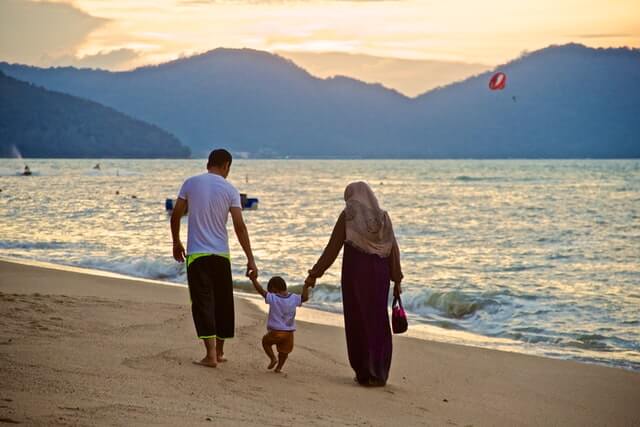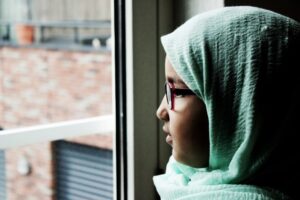Arabs in UK: Identity, Belonging, and Other Struggles

I once again return, even though late, to talk about Arabs living in the United Kingdom and what their struggle. In my previous article, I spoke of their struggle to belong in a society they are foreigners in.
And so allow me to speak in utmost honesty, hoping that by doing so I will be able to find a solutions to my problems. Back in our hometown, we were raised to be afraid of admitting to our own mistakes, and instead blame others for them. This fear stems mainly from the consequences that may result from the admission of responsibility, which may be very harmful in many cases.

And although we are now live in a different part of the world, and are more self-aware, and more accustomed to different habits, we still carry some of the toxic ones unintentionally, and thus pass it down to our children’s.
Our children were born and raised in the United Kingdom, unaware of such habits. They too struggle to balance their life and views.
However, some parents are not aware of their children struggles, I have met many of youngsters to give the chance to voice out their struggles and concerns.
Let us say exactly what some parents do, thinking is enough, to involve their children more in their religion and culture:
- Sending their children to weekly Arabic and Quran lessons
- Sending their children to their home country whenever possible
- Asking girls to wear the hijab at a very young age
- Not asking girls to wear the hijab or practice the daily prayers (Girls & Boys)
- Repeating that “we don’t belong” to this society
- Always mentioning going back to live in their home countries
- Not caring what type of struggles our children are facing
- Not understating that how and where we – as parents – were raised is different than our children
This is not enough, it cannot fulfill the need the children have to have a relationship with their parents explaining their background.
another issue I have seen is that Stay At Home moms take the full responsibility of raising the children, leaving dads unaware of who their children spend time with or what do they like to do on the weekends and so on.

Stories from within – Arabs in UK
Let me tell you some of the stories that these young people had shared during the interviews:
“My father forced me to wear the hijab when I was young (10 years old), I was always mocked by the children at school because of it. Sometimes I ignored them as my mother told me, and often I got angry and clashed with them. I was punished repeatedly for my behavior in school. My father did not care. He used to ask me to pray, but he never did, and he always threatened me of sending me to live in his hometown.”
And when I asked, “Where do you say you are from?” She said that “my mom told me I was from *Arab country* but to be honest I can’t answer that”
Another says: “I used to love Arabic, and I attended Qur’an lesson every weekend at school. My parents never cared if I prayed or not, so I struggled with it. I am now in university, I sometimes pray and sometimes I don’t, I only speak Arabic as per my parents dialect, and so I can’t understand other Arabs from other regions. I understand my parents struggled to provide for us, but I do wish they helped me keep up with my prayers”
When I asked him, Where are you from?, He replied, “I like to say I am *Arab nationality* British.”
A third says: “My parents are of Arab origin, but they never spoke Arabic at home, we speak English all the time. And even though they are Muslims, they never practiced it. Currently I am an atheist, and I am okay with it.”
And when asked “Where are you from?”, she answer: “I am British”
But on a different note, another had said: “We are 4 brothers and sisters, and my parents are friends with us all. They are very involved in our alife and they know almost everything about us. When we face any problems at school, they would always tell us what to do right. We are raised as a part of this society and that we have a responsibility to ourselves first, our family and our friends.
And when I asked him, How do you introduce yourself? He replied, “I’m a British Muslim,” and I love my parents’ hometown and visit it frequently.
Those stories are the tip of the iceberg, but you can already see how it is going.

What children need is much more than food, clothing, drink and school. What parents should do most is to build a healthy relationship with their children, a relationship full of understanding, love and honesty.
A healthy relationship with children builds a strong personality that able to understand their responsibilities. They receive the best of the values of their parents and the values of British society, and most importantly, they do not feel that they are strangers to this society, and do not live on the margins, but rather are involved in all areas of life in Britain.
And finally, in order to truly reflect on yourself, observe the above stories, which do you think your children will belong to?
Read More
Arabic is a gift to be protected.
“Al-Arabs in UK” an online platform that gathers Arabs
ShortURL ⬇

